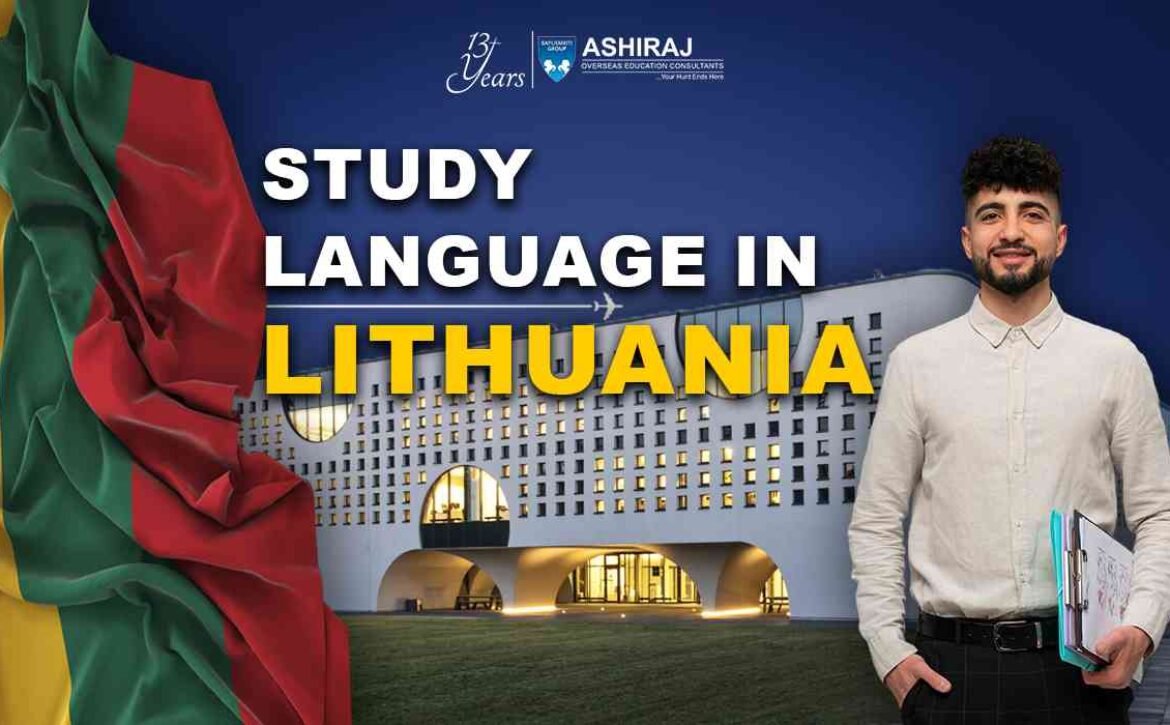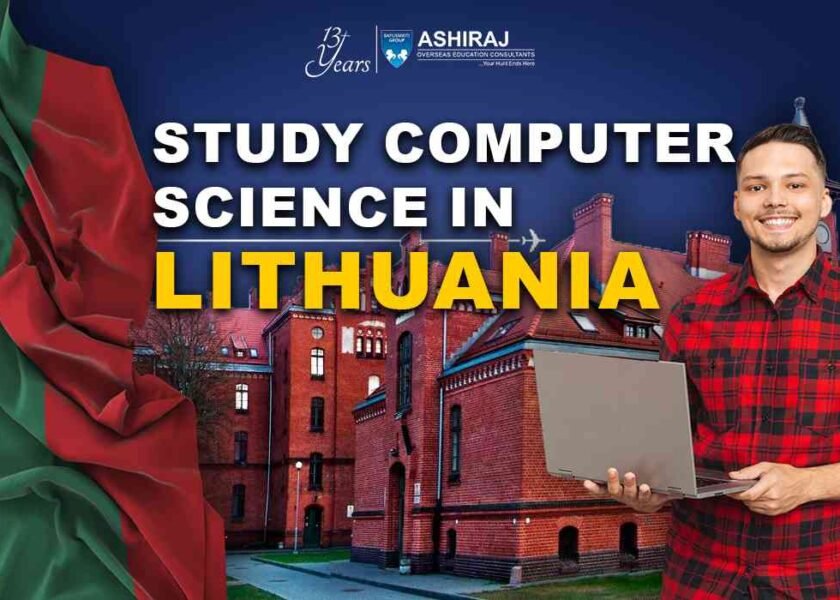
Language in Lithuania
Language in Lithuania holds a central position in the country’s cultural and historical landscape. Lithuanian, one of the oldest languages in the world, is the official language of Lithuania, spoken by the majority of its population. With its roots tracing back to the Baltic linguistic group, Lithuanian has evolved over centuries, preserving its unique phonetics, grammar, and vocabulary. Beyond Lithuanian, other languages such as Russian, Polish, and English are also spoken in the country, reflecting its diverse linguistic heritage and historical influences.
Language in Lithuania encompasses not only communication but also serves as a significant marker of national identity and cultural pride. Efforts to preserve and promote the Lithuanian language have been integral to the nation’s cultural policies, with initiatives focusing on education, media, and literature. The rich linguistic tapestry of Lithuania underscores the country’s dynamic cultural landscape, where language serves as a bridge between tradition and modernity, connecting the past with the present in this Baltic nation.
Why to Study Language in Lithuania?
- Rich Linguistic Heritage: Lithuania boasts one of the oldest languages in the world, Lithuanian, which offers a unique opportunity for language enthusiasts to delve into a rich linguistic heritage.
- Cultural Immersion: Studying language in Lithuania provides more than just academic knowledge; it offers an immersive experience into the country’s culture, traditions, and way of life.
- Gateway to Europe: Lithuania’s strategic location in Eastern Europe makes it an ideal base for exploring neighboring countries and their languages, offering a gateway to understanding broader European linguistic diversity.
- High-Quality Education: Lithuania is home to reputable universities and language schools that offer high-quality language programs, taught by experienced faculty members.
- Career Opportunities: Proficiency in the Lithuanian language can open up a wide range of career opportunities, both within Lithuania and internationally, especially in fields such as translation, diplomacy, and tourism.
- Personal Growth: Learning a language in Lithuania is not just about acquiring linguistic skills; it’s also about personal growth, fostering adaptability, cross-cultural communication, and a deeper understanding of global perspectives.
Studying language in Lithuania offers a unique blend of academic rigor, cultural immersion, and personal enrichment, making it an attractive destination for language learners seeking a transformative educational experience.
Top Universities to Study Language in Lithuania
University | QS World University Ranking 2023 | Type of University | Average Annual Fees | Programs Offered |
Vilnius University | 501-510 | Public | $1,000 – $5,000 | Lithuanian Language and Literature, English Language and Literature, Translation Studies |
Kaunas University of Technology | 601-650 | Public | $1,000 – $4,000 | English Language and Literature, Translation and Localization, Linguistics |
Vytautas Magnus University | 701-750 | Public | $1,000 – $3,500 | Lithuanian Philology, English Philology, Translation Studies |
Klaipėda University | 801-1000 | Public | $1,000 – $4,500 | English Language and Literature, Translation and Interpreting, Intercultural Communication |
ISM University of Management and Economics | 1001+ | Private | $5,000 – $10,000 | Business English, Intercultural Communication, International Business |
In Lithuania, several universities offer excellent programs for studying language, catering to both national and international students. Here’s a breakdown of the top universities in Lithuania for language studies according to the QS World University Rankings 2023:
- Vilnius University: Renowned for its strong language and literature programs, offering courses in Lithuanian Language and Literature, English Language and Literature, and Translation Studies.
- Kaunas University of Technology: Known for its diverse language programs including English Language and Literature, Translation and Localization, and Linguistics.
- Vytautas Magnus University: Offers comprehensive programs in Lithuanian Philology, English Philology, and Translation Studies.
- Klaipėda University: Provides courses in English Language and Literature, Translation and Interpreting, and Intercultural Communication.
- ISM University of Management and Economics: While primarily focused on business studies, it offers programs in Business English, Intercultural Communication, and International Business, catering to language enthusiasts with a business focus. These universities not only provide quality education but also foster cultural understanding and linguistic proficiency, making them ideal choices for language studies in Lithuania.
Course Curriculum for Language in Lithuania
- Lithuanian Language and Literature: Emphasizes the study of the Lithuanian language, its grammar, phonetics, and literature, tracing its historical development and cultural significance.
- English Language and Literature: Covers various aspects of the English language, including grammar, syntax, and phonology, alongside the exploration of English literature from different periods and genres.
- Translation Studies: Focuses on the theory and practice of translation, equipping students with the skills needed to translate between Lithuanian and other languages effectively.
- Linguistics: Explores the scientific study of language, including phonetics, syntax, semantics, and pragmatics, providing insights into the structure and function of languages.
- Intercultural Communication: Addresses the dynamics of communication between people from different cultural backgrounds, preparing students for effective communication in diverse contexts.
The course curriculum of language studies in Lithuania is designed to provide students with a comprehensive understanding of languages, literature, translation, and communication, fostering linguistic proficiency, cultural awareness, and academic excellence. Through a combination of theoretical knowledge and practical skills development, students gain a deeper appreciation for language in Lithuania and its role in shaping society, culture, and identity.
Eligibility Criteria & Admission Requirements for MS in Language in Lithuania
- Language Proficiency Tests: Applicants are typically required to demonstrate proficiency in English through standardized tests such as IELTS or TOEFL. Minimum scores may vary depending on the university and program.
- Standardized Tests (Optional): Some universities may also require applicants to submit scores for standardized tests like GRE or GMAT, especially for graduate programs. Minimum scores vary based on the institution and program requirements.
- Educational Qualifications: Applicants should hold a relevant academic background, typically a bachelor’s degree for master’s programs and a master’s degree for doctoral programs. Transcripts and certificates may need to be submitted for verification.
- Passport & Student Visa: International students must possess a valid passport and obtain a student visa to study in Lithuania. Visa requirements and application processes may vary depending on the student’s country of origin.
- Work Experience (Optional): While not always mandatory, some programs may prefer applicants with relevant work experience in the field. Work experience certificates or letters may be requested during the application process.
Test | Minimum Score |
IELTS | 6.5 |
TOEFL | 79 |
GRE | 300 |
GMAT | 550 |
Meeting the eligibility criteria is crucial for admission to language programs in Lithuania, ensuring that students have the necessary language proficiency, academic background, and documentation to pursue their studies effectively. Language in Lithuania holds significance not only in academic pursuits but also in facilitating cross-cultural communication and global engagement.
Documents Required for Studying Language in Lithuania
- Passport: A valid passport is essential for international students applying to study language in Lithuania, serving as identification and proof of nationality.
- Letters of Recommendation (LOR): Typically, two letters of recommendation from academic or professional referees are required to assess the applicant’s character, skills, and suitability for the program.
- Statement of Purpose (SOP): The SOP provides insight into the applicant’s academic and career goals, motivations for studying language in Lithuania, and how the program aligns with their aspirations.
- Curriculum Vitae (CV): A comprehensive CV outlines the applicant’s educational background, work experience, skills, achievements, and extracurricular activities, providing a holistic view of their qualifications.
- Official High School Transcripts: Transcripts from the applicant’s high school or secondary education institution are necessary to verify academic performance and eligibility for higher education.
- Educational Certificates: Copies of educational certificates, such as diplomas or degrees, are required to validate academic achievements and qualifications.
- Work Experience Certificate: If applicable, a work experience certificate may be required to demonstrate relevant professional experience in the field.
- Proof of Financial Resources: Applicants must provide evidence of sufficient financial resources to cover tuition fees, living expenses, and other costs associated with studying and living in Lithuania.
Ensuring the timely submission of these documents is crucial for a smooth application process and admission to language programs in Lithuania. Language in Lithuania thrives on a diverse student body, enriching the academic environment and fostering cross-cultural understanding and collaboration.
Admission Process for Language in Lithuania
- Research Universities: Begin by researching universities in Lithuania offering language programs, considering factors such as reputation, curriculum, faculty, and facilities.
- Check Eligibility: Review the admission requirements for your chosen program, including language proficiency tests (IELTS or TOEFL), educational qualifications, and any additional criteria.
- Gather Documents: Collect all required documents, including passport, academic transcripts, certificates, letters of recommendation (LOR), statement of purpose (SOP), curriculum vitae (CV), and proof of financial resources.
- Submit Application: Complete the online application form provided by the university, ensuring accuracy and completeness. Attach all necessary documents as per the institution’s instructions.
- Pay Application Fee: Pay the required application fee, if applicable, as part of the submission process. Keep a record of the payment receipt for future reference.
- Wait for Response: After submitting your application, await a response from the university regarding the status of your application. This may take several weeks, so remain patient during the evaluation process.
- Interview (if required): Some programs may require an interview as part of the admission process. Prepare for the interview by familiarizing yourself with the program and showcasing your interest and qualifications.
- Receive Admission Offer: If successful, you will receive an admission offer from the university. Review the offer letter carefully, including any conditions or deadlines specified.
- Accept Offer and Obtain Visa: Upon acceptance, follow the instructions provided by the university to confirm your enrollment. Apply for a student visa, if necessary, and make arrangements for travel and accommodation.
Following these steps diligently will help facilitate a smooth admission process for language programs in Lithuania. Language in Lithuania thrives on a diverse student body, enriching the academic environment and fostering cross-cultural understanding and collaboration.
“Education is the most powerful weapon which you can use to change the world.”
Nelson Mandela
Cost of Language Course in Lithuania
- Tuition Fees: The tuition fees for language programs in Lithuania vary depending on the university, program duration, and level of study. On average, tuition fees can range from $1,000 to $5,000 per year for undergraduate and graduate programs.
- Living Expenses: Consider the cost of living in Lithuania, including accommodation, food, transportation, and personal expenses. Monthly living expenses for students are estimated to be around $400 to $700, depending on the city and lifestyle.
- Accommodation: Options for accommodation include university dormitories, private apartments, or shared housing. Rent for a single room in a university dormitory typically ranges from $100 to $300 per month.
- Books and Supplies: Budget for textbooks, study materials, and other academic resources, which may cost approximately $200 to $400 per year, depending on the program requirements.
- Health Insurance: International students may need to purchase health insurance, which can vary in cost depending on the coverage and provider.
Overall, the cost of studying language in Lithuania is relatively affordable compared to many other European countries. However, it’s essential to budget carefully and plan for all expenses to ensure a comfortable and successful academic experience. Language in Lithuania offers an enriching cultural and educational experience at a reasonable cost, making it an attractive destination for international students seeking quality language programs abroad.
Scholarships for Language Courses in Lithuania
Scholarship Name | Amount | Application Deadline |
Vilnius University Scholarships | Up to $5,000 per year | May 1st |
Lithuanian Government Scholarships | Full tuition waiver, monthly stipend | February 1st |
Santaka Scholarship | Up to $2,000 per year | March 15th |
KTU Scholarship | Up to $3,500 per year | April 30th |
VMU Scholarships | Varies | June 1st |
Scholarships for language studies in Lithuania offer financial assistance to students pursuing their academic goals. Here’s a breakdown of some prominent scholarships available:
Scholarships for language studies in Lithuania offer financial assistance to students pursuing their academic goals. Here’s a breakdown of some prominent scholarships available:
- Vilnius University Scholarships: Offers financial support of up to $5,000 per year to eligible students. The application deadline is May 1st.
- Lithuanian Government Scholarships: Provides full tuition waivers and a monthly stipend to selected students. The application deadline is February 1st.
- Santaka Scholarship: Grants financial aid of up to $2,000 per year to deserving students. The application deadline is March 15th.
- KTU Scholarship: Offers financial assistance of up to $3,500 per year to qualified applicants. The application deadline is April 30th.
- VMU Scholarships: Various scholarships with different amounts are available for eligible students. The application deadline is June 1st.
Applying for scholarships can help alleviate the financial burden of studying language in Lithuania, making it more accessible to students from diverse backgrounds. Language in Lithuania thrives on a supportive educational environment, where scholarships play a crucial role in promoting academic excellence and fostering international collaboration.
Career Opportunities After Language in Lithuania
Job Profile | Average Salary (per year) |
Translator/Interpreter | $20,000 – $35,000 |
Language Teacher | $15,000 – $25,000 |
Content Writer/Editor | $18,000 – $30,000 |
International Relations Specialist | $25,000 – $40,000 |
Tour Guide | $12,000 – $20,000 |
After completing language studies in Lithuania, graduates have various career opportunities to explore. Here’s a breakdown of potential job profiles along with their average salaries:
- Translator/Interpreter: Translators and interpreters help bridge language barriers in various settings such as business meetings, conferences, and legal proceedings. The average salary ranges from $20,000 to $35,000 per year.
- Language Teacher: Language graduates can pursue careers as language teachers in schools, language institutes, or private tutoring. The average salary for language teachers ranges from $15,000 to $25,000 per year.
- Content Writer/Editor: Language skills are valuable in content creation and editing roles for websites, publications, and marketing materials. Content writers/editors earn an average salary of $18,000 to $30,000 per year.
- International Relations Specialist: Proficiency in multiple languages can lead to opportunities in international relations, diplomacy, and cultural exchange programs. The average salary for international relations specialists ranges from $25,000 to $40,000 per year.
- Tour Guide: Language graduates with a passion for travel and cultural exploration can work as tour guides, showcasing the rich heritage and attractions of Lithuania. Tour guides earn an average salary of $12,000 to $20,000 per year.
Exploring these career paths allows language graduates to utilize their linguistic skills while contributing to various industries and sectors. Language in Lithuania opens doors to diverse career opportunities, reflecting the global demand for language professionals in an interconnected world.
Frequently Asked Questions About Language in Lithuania
The official language of Lithuania is Lithuanian, but other languages such as Russian, Polish, and English are also spoken.
Yes, many universities in Lithuania offer language programs taught in English to accommodate international students.
International students typically need to demonstrate proficiency in English through tests like IELTS or TOEFL and meet academic qualifications for admission.
Yes, there are various scholarships offered by universities and the Lithuanian government to support international students studying language in Lithuania.
The cost varies depending on the university, program, and living expenses, but it is generally affordable compared to other European countries.
Yes, international students with a valid student visa are allowed to work part-time during their studies to supplement their income.
The duration varies depending on the level of study and the specific program, but language programs typically range from one to four years.
Yes, Lithuania offers a rich cultural heritage and numerous opportunities for students to engage with local traditions, festivals, and events.
The quality of education in language programs is generally high, with universities offering modern facilities, experienced faculty, and a supportive learning environment.
Graduates can pursue various career paths such as translation, teaching, content writing, international relations, and tourism, both within Lithuania and internationally.




